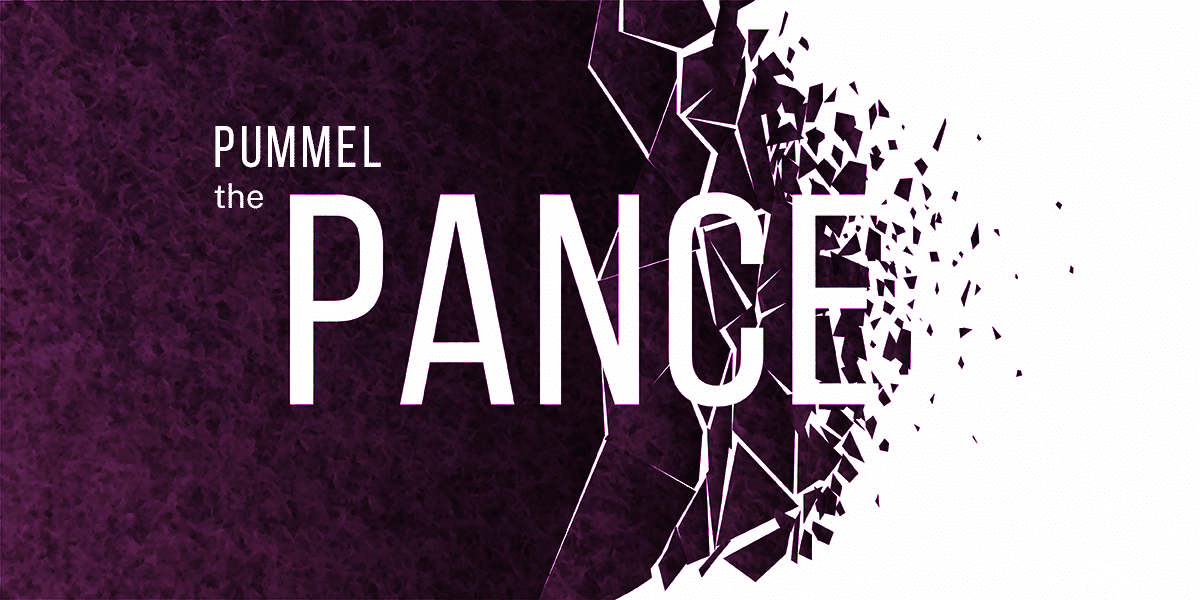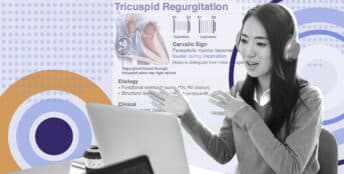How to Create a Study Plan and Pummel the PANCE

Before I even started my PANCE review, I made a detailed, weekly study schedule in Microsoft Word. As my studies progressed, this schedule was incredibly motivating and helpful at keeping me on track.
After making this schedule, I selected several PANCE study resources to use. There are literally dozens of credible PANCE study resources and materials, so choosing just a few can be difficult and overwhelming. My advice is to stick with what worked for you during your PA program and what is considered to be consistently legitimate.
For my “textbooks,” I chose PANCE Prep Pearls by Dwayne Williams as my primary book and A Comprehensive Review for the Certification and Recertification Examinations for Physician Assistants by Claire Babcock O’Connell as my supplemental book. For question banks, I primarily used Rosh Review and sometimes used Exam Master.
Create your schedule
My study schedule was simple: cover 2–3 topic areas per week using my textbooks of choice and complete 25–50 questions on each topic per week. I started my studies with the less heavily weighted topic areas on the PANCE (Hematology/Infectious Disease) and finished with the more heavily weighted areas (Cardiology/Pulmonology).
I am a visual and kinesthetic learner through and through, so I made my own study notes for each topic area to solidify my knowledge and help me learn. Here’s an example: the first week I began studying specifically for the PANCE, I covered the NCCPA blueprint diseases/conditions for Hematology and Infectious Diseases but also covered other diseases mentioned in PANCE Prep Pearls that may not have been listed on the NCCPA blueprint. When I made my study notes, I organized them by body system/topic area and wrote out information about each disease/condition that I did not remember from previous lectures, exams, or study sessions or simply wanted to reinforce. This is how I studied throughout my undergraduate academic career and my PA school career and it proved to be successful for me, so I decided to stick with it for the PANCE.
To avoid distraction during these long study sessions, I often set a timer on my phone for 45 minutes. During those 45 minutes, I did not allow myself to check my messages, answer any calls, or tend to other interruptions: I was solely focused on my studies.
Dive into the details
Covering each body system using PANCE Prep Pearls and A Comprehensive Review for the Certification and Re-certification Examinations for Physician Assistants comprised the meat and potatoes of my studying. Reading the textbook chapters and creating my study notes took roughly five weeks, with 12–20 hours spent each week. During these sessions, I typically studied at my kitchen table at home, at local coffee shops, or in study rooms on campus.
My school’s PA curriculum required us to be on campus for the last two months of the program, so my study location depended on my course schedule for the day. I usually studied for several hours each day depending on my schedule. To avoid distraction during these long study sessions, I often set a timer on my phone for 45 minutes. During those 45 minutes, I did not allow myself to check my messages, answer any calls, or tend to other interruptions: I was solely focused on my studies. When the timer alarm went off, I allowed myself a 10-minute “brain break” before I returned to my focused study time.
After completing each topic area/body system each week, I did 25–50 question exams on Rosh Review for that specific topic area/body system. During the course of my PANCE studying, I created a long document of information I learned just from the Rosh Review questions and reviewed this a day or two before the PANCE exam.
In addition to questions over my weekly self-assigned topics, I also tried to do 25 questions per week on either Cardiology, Pulmonology, Musculoskeletal System, or Gastroenterology starting on week 1. I knew I would not be studying these more heavily weighted sections in detail until later on, so I wanted to keep my knowledge fresh for these body systems. Some people feel that practice questions are not helpful or necessary for studying; however, for me, doing PANCE practice questions is essential. It is crucial for me to conceptually see how information about a certain topic or disease might be formulated into a question. You might think you totally understand diabetic ketoacidosis, but until you encounter a specific question about how to manage it, you might not truly understand the treatment.
I loved using Rosh Review because the visuals are excellent and I always felt challenged. The questions and content are definitely difficult in comparison to other question bank resources; however, these questions will prepare you well for both the PANCE and for clinical practice.
It took me about 5–6 weeks to complete my study notes over all of the blueprint topics. By the time I finished this portion of my studying, I had read PANCE Prep Pearls and A Comprehensive Review cover to cover. At this point, I still had several weeks until exam time. I then began to go back through my study notes over and over, quizzing myself by physically covering up information, forcing myself to recall it, highlighting information I still needed to reinforce. As the PANCE approached and I became weary of studying, my sweet husband agreed to quiz me on the highlighted information from my notes, which was EXTREMELY helpful. If you can teach someone else about a condition, you likely know it well.
I loved using Rosh Review because the visuals are excellent and I always felt challenged. The questions and content are definitely difficult in comparison to other question bank resources; however, these questions will prepare you well for both the PANCE and for clinical practice.
In addition to the textbooks and resources used above, I referred back to several specific sets of study notes I made during clinical year. During my women’s and children’s health block, I used Step-Up to Pediatrics and Step-Up to Obstetrics and Gynecology in addition to PANCE Prep Pearls to guide my studies. For both women’s health and surgery block, I watched all of the free Online Med Ed videos to guide my studies. I kept all of my study notes from clinical year and rotation exams and particularly referred back to the aforementioned notes for my PANCE.
Use resources beyond books
About three weeks before my PANCE, I attended CME4Life’s three-day board review course that was offered at my program. I took notes during these sessions and read them several times thereafter. This PANCE review course covered Cardiology, ECGs, Pulmonology, Gastroenterology, Musculoskeletal System, and Infectious Diseases. I mainly took this course for a change of study scenery and reinforcement of content. It was undoubtedly helpful, but likely not necessary to pass.
I am NOT an auditory learner, so I didn’t listen to any podcasts. I have trouble paying attention when I cannot visually process the content, so podcasts are not particularly helpful to me when studying.
While I didn’t read any blogs, I did watch the official PANCE videos on the NCCPA website about a week prior to my exam. In addition to preparing by studying content, I believe preparing for the exam environment and schedule is just as important. Being familiar with the exam check-in process, allowed breaks, and timed sections allows the test taker to focus their energy on the actual exam.
About four days before taking the PANCE, I took one of the official NCCPA PANCE practice exams online. It was long and exhausting, but helpful in terms of practicing mental endurance and reinforcing my confidence in terms of performance. After you complete this exam, it generates a performance report that demonstrates both your overall proficiency and your proficiency in specific topic areas. I highly recommend taking at least one of these exams before the PANCE.
Take a break!
The day before my PANCE, I did not study AT ALL. Multiple friends and mentors who had taken the PANCE recommended this, and I decided to heed this advice. By that time, I was anxious about the exam and my brain was fried from studying so intensely for so long. Studying an extra day would not have changed my exam score and I needed a mental break before the long exam. On this day, I traveled to my exam location to ensure I could locate it easily on the day of the exam, met my fellow classmate at the testing center, and we prayed together. I spent the rest of the day enjoying time with family and relaxing.
I studied with two perspectives: 1) to pass the exam and obtain my NCCPA certification and 2) to become the best provider I can be for my future patients.
Looking back, I would not change anything about the way I studied and prepared for the PANCE. I devoted a total of 7–8 weeks of focused study time for the PANCE during my last semester of PA school and studied with two perspectives: 1) to pass the exam and obtain my NCCPA certification and 2) to become the best provider I can be for my future patients. My performance on the exam well exceeded my expectations and I feel as though my study plans and strategies were efficient and effective.
I hope my story helps other PA students with gaining insight about study tools for the PANCE and perhaps it will contribute to someone else’s success story!
Interested in joining a live course for accelerated PANCE review? The 4-day Rosh Review PANCE Review Course is now open for enrollment to help you pass the exam on the first take!
Or, find out more information about Rosh Review’s PANCE review Qbank.
Pummel the PANCE Series shares the experiences, insights, and perspectives of PA students preparing for the PANCE. The goal of the series is to provide you with actionable information and key takeaways to help you not only prepare for but to excel on the PANCE.
Rosh Review, LLC is not sponsored or endorsed by, or affiliated with, the National Commission on Certification of Physician Assistants (NCCPA). All trademarks are the property of their respective owners.





Comments (0)